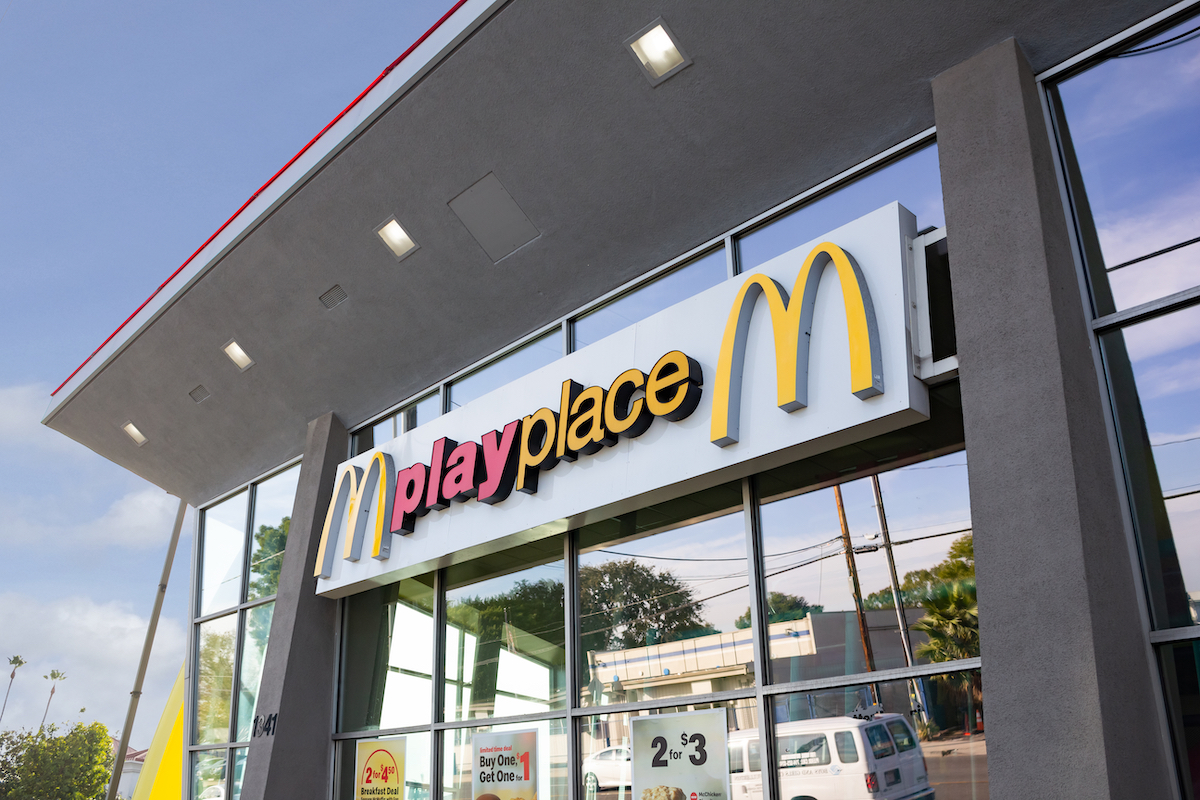McDonald's May Permanently Lose This Long-Time Restaurant Fixture

For eons it was every young child's dream to finally stand a proud four-feet tall, the official height requirement to play in a multicolored ball pit at a McDonald's PlayPlace. But this little triumph among children may already be extinct.
For obvious reasons, McDonald's PlayPlaces have been shuttered for months. But in a new, wide-ranging, and in-depth interview with Time Magazine, McDonald's CEO Chris Kempczinski says that the fixture of this once-popular restaurant birthday future is looking bleak.
"I don't know if we've got ball pits in our future," Kempczinski said, when asked directly by the interviewer if the restaurant chain will "ever build a ball pit again. "There's probably some good public-health reasons not for us to be doing a lot of ball pits."
It's probably a smart move—and for health reasons that extend beyond containing the spread of COVID-19. According to research published last year in The American Journal of Infection Control, ball pits are a petri dish of germs. The researchers found that they contained more than 31 different types of bacteria. In one overly dirty ball pit, the scientists discovered that a single ball contained 712,000 microorganisms.
"Collectively, these bugs can cause sepsis, urinary tract infections, endocarditis (an infection of the heart's lining), meningitis, bloodstream infections, skin infections and pneumonia in children," reported The Mail Online.
Retiring the ball pit was only one of the many revelations that Kempczinski, who unexpectedly rose to the restaurant chain's top job last November, offered to Time.
He also revealed:
- McDonald's just posted a 24 percent drop in quarterly earnings, which Kempczinski called the "worst" in the history of the company. He noted that part of the reason for that sharp downfall—aside from the obvious restaurant shutdowns—was the fact that McDonald's donated $30 to $40 million worth of meals to frontline workers.
- McDonald's delivery is way bigger than you imagined, responsible for nearly $4 billion in revenue. "We have a very robust and fast-growing delivery business," said Kempczinski. "Over the last several years, it's been a significant growth driver for us."
- Diners are lovin' McD's old-school offerings and are less apt to experiment with new items right now. "The surprising thing is that in the pandemic, consumers are gravitating back to our core menu," he said. "You're seeing it in grocery-shopping behavior where these brands that in some cases people have viewed as, years ago I used to eat soup, and now all of a sudden people are eating soup again. You're seeing a similar desire for trusted favorites … Big Mac, Quarter Pounder, french fries. They're less willing to be trying new things. They're less likely to go out there and try some fancy new burger at McDonald's."
And for more on America's favorite fast food chain, read about how McDonald's May Call the Police on Customers Who Refuse to Do This.








